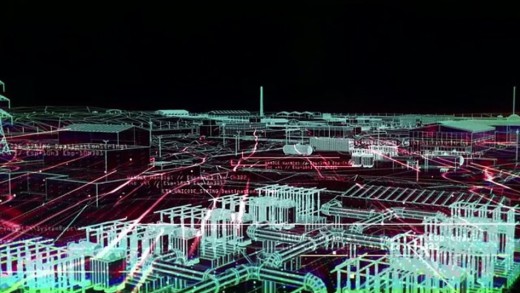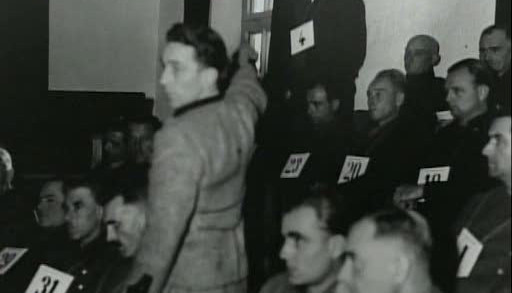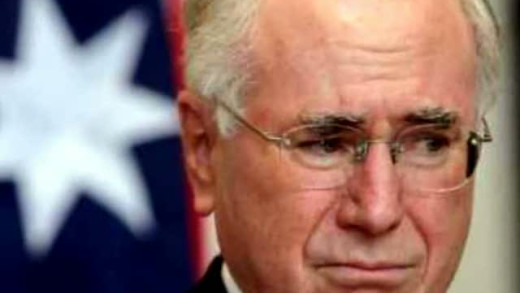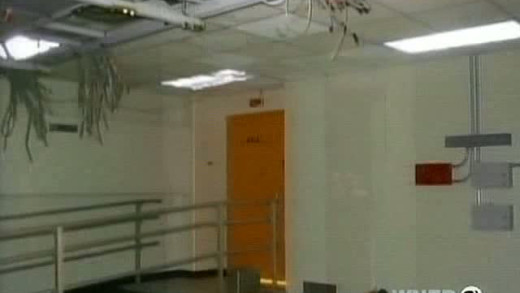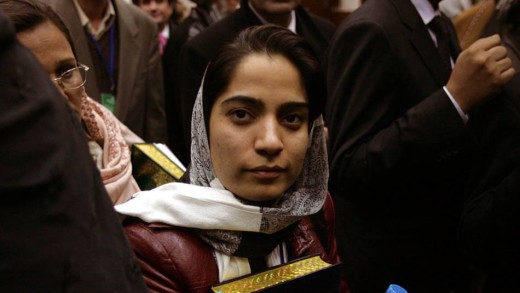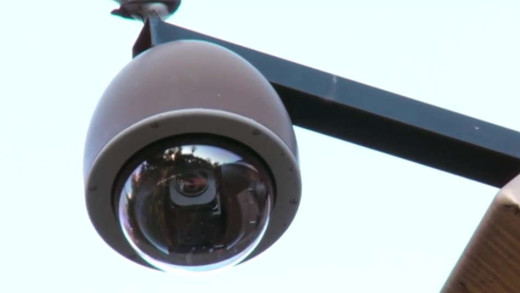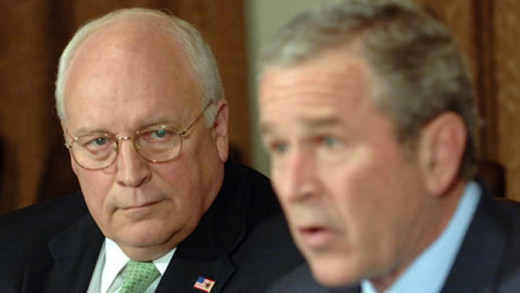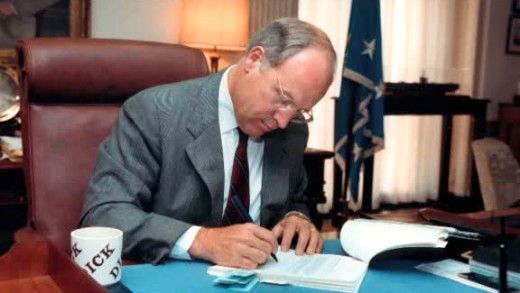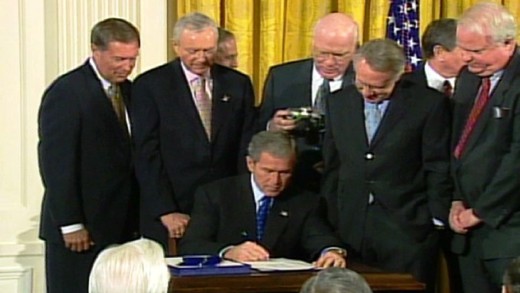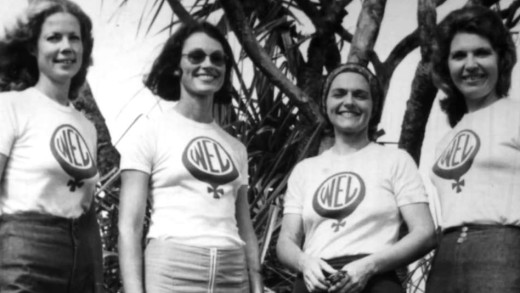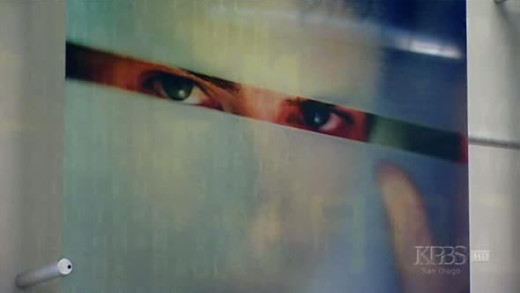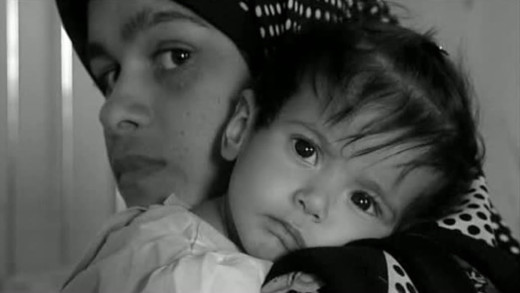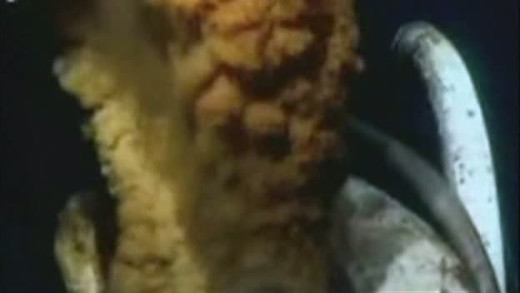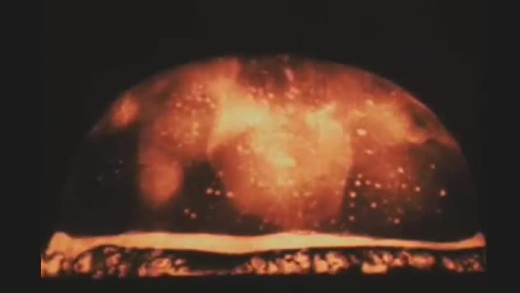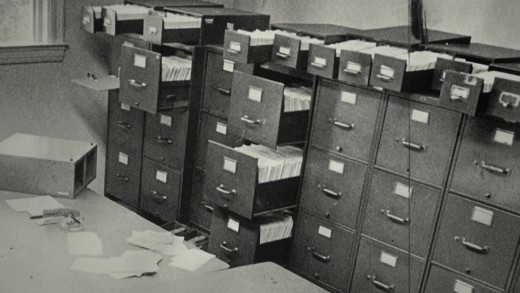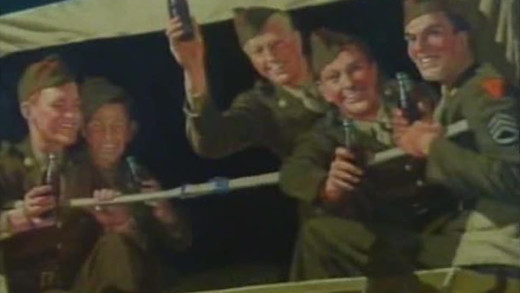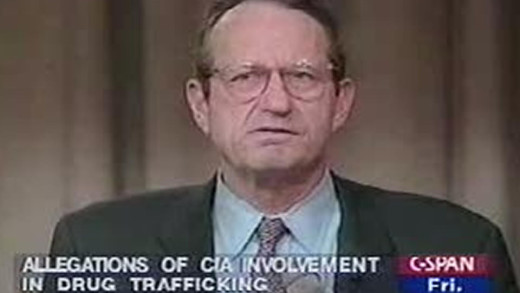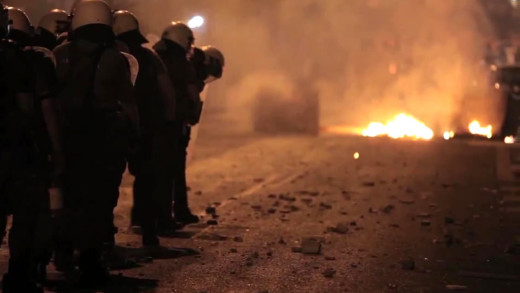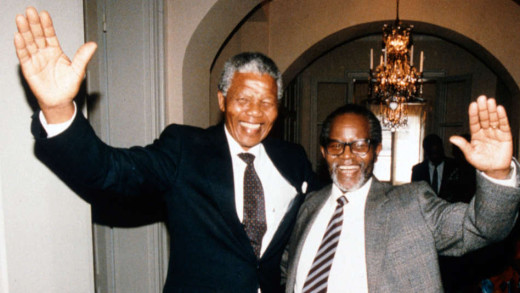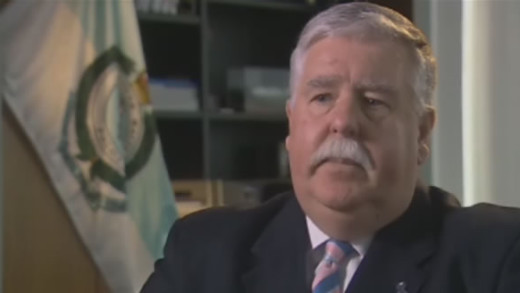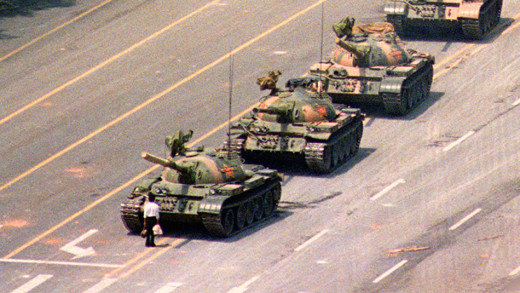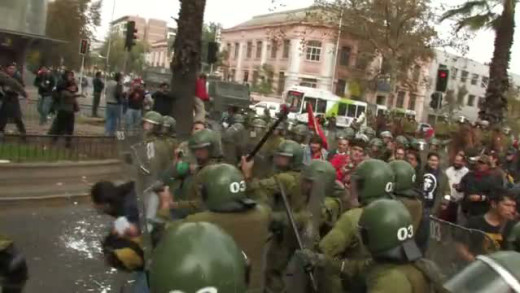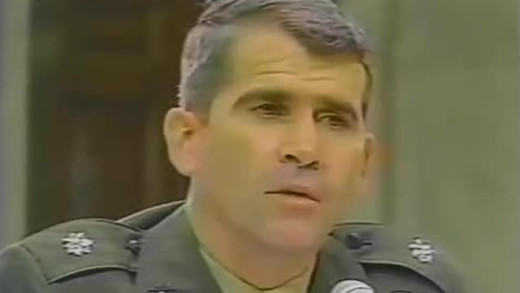Obey
Obey is a video essay based on the book "Death of the Liberal Class" by author and journalist Chris Hedges. The film charts the rise of corporatocracy and examines the trending possible futures of obedience in a world of unfettered capitalism, globalisation, staggering inequality and environmental crisis -- posing the question, do we resist or obey?
Zero Days
Stuxnet is a malicious computer virus, first identified in 2010, that targets industrial computer systems and was responsible for causing substantial damage to Iran's nuclear program, as well as spreading across the world. The virus is believed by many experts to be a jointly built American-Israeli cyberweapon, although no organisation or state has officially admitted responsibility. Zero Days covers the phenomenon surrounding the Stuxnet computer virus and the development of the malware software known as "Olympic Games." It also examines the follow-up cyber-plan entitled 'Nitro Zeus,' showing how the United States has opened the Pandora's Box of cyberwarfare.
Shifty
Shifty is a series of films that traverse the past 40 years in Britain, showing how the shift of political power to finance and hyper-individualism came together in powerful ways, to undermine one of the fundamental structures of mass democracy--the shared idea of what is real. As that fell apart, with it went the language and the ideas that people had turned to for the last 150 years to make sense of the world they lived in. As a result, life in Britain and the current and former colonies of its empire, has become strange--a hazy dream-like flux, where distrust in politicians keeps growing, and the political class seems to have lost control. Through archive footage, news reels, and on-screen-text in video essay format, Shifty documents the shapes of how this happened, using the vast ranges of footage to evoke what if felt like to live through an epic transformation during the 1980s.
In the early 1940s, hundreds of thousands of people unknowingly became test subjects in toxins experiments and biological weapons tests conducted by the United States government. LSD tested on civilians, nerve gas sprayed into suburbs, hospital patients injected with plutonium, children exposed to biological and chemical agents just to see what would happen...the list goes on. And in most if not all cases, tests were carried out without the knowledge or consent of those involved. In 1996, evidence of these secret operations hit the news, uncovering a history of secret operations and covert projects that cast a large shadow over the operations of US military and intelligence agencies, to this day. Experiments with biological weapons and the testing of chemical warfare were only part of the story...
Fool Me Twice
Fool Me Twice documents the Australian government's lies about the East Timor massacres, the cover-up of the Bali bombings (including the 1993 World Trade Centre attack) and subsequent anti-terror legislation forced through parliament by the Howard government. Laws that are still in effect today...
For Your Eyes Only? reports on the existence of a secret government program that intercepts millions of e-mails each day in the name of 'terrorist surveillance'. News about the program came to light when a former AT&T employee, Mark Klein, blew the whistle on a large-scale installation of secret Internet monitoring equipment deep inside AT&T's San Francisco office. The equipment was installed at the request of the United States government to spy on all e-mail traffic across the entire Internet. Though the government and AT&T refuse to address the issue directly, Klein backs up his charges with internal company documents and personal photos...
In September 2005, Afghanistan held its first parliamentary elections in 35 years. Among the candidates was Malalai Joya, a courageous 27-year-old woman who had ignited outrage among hard-liners when she spoke out against corrupt warlords and criminals at the "Grand Council of tribal elders" in 2003. Enemies of Happiness is a revelatory portrait of this extraordinary freedom fighter and the way she connected with the people of Afghanistan. The film also serves as a snapshot of life and politics in war-torn Afghanistan from this time. As Joya rightly points out several Taliban warlords and wants them prosecuted for their crimes against the Afghan people, she is exposed to several death threats, and has been under constant protection. Can she overcome entrenched views and death threats to help bring democracy to Afghanistan?
For the past 15 years, the misnomer "War on Terror" has been used by the United States to justify everything from mass surveillance and spying on its own citizens, to the use of secret drone strikes to kill people without trial or sometimes even evidence. Governments have always applied surveillance to those they consider a political threat, but the scale of the clandestine PRISM programme, which collects the data of billions of innocent people all across the globe, is unprecedented. Likewise is the call for the journalists who published the documents revealing the PRISM programme to be prosecuted. In the wake of relations about sustained, systematic abuses of power, it is apparent that in many areas, the United States operates on spurious interpretations of law, often explained in confidential memos, hidden from the public. Other times, the law is disregarded entirely. So what does this mean for resistance? How can citizen rights be reconciled with a rogue state security apparatus?
As the U.S. stands at the brink of invasion into Iraq, many are now warning about the potential consequences: the danger of getting 'bogged down' in Baghdad, the prospect of long-time allies leaving America's side, the possibility of chaos in the Middle East, the threat of 'renewed terrorism'. The Bush administration insiders who helped define the doctrine of pre-emption and who have argued most forcefully for invasion, are determined to set a course that will "remake America's role in the world"...
Hijacking Catastrophe examines the evidence that neoconservatives used the September 11, 2001 attacks to usher in a new doctrine of expanding American power through military force under the guise of a "war on terror" and that the doctrine -- known as the Project for the New American Century -- had been laid out prior to 9/11 by its authors, which include Dick Cheney, Paul Wolfowitz, Donald Rumsfeld, Jeb Bush and Dan Quayle...
Founded in 1976, the United States Office of Multilateral Diplomacy--known informally as the Zap Office--was created by Henry Kissinger to try and influence the voting patterns of third world nations at the United Nations by withholding food aid to those who did not vote alongside the United States. Zap! The Weapon Is Food is an investigation of this policy, one that makes food more powerful than oil...
A few weeks after the September 11 attacks in 2001, the United States congress quickly passed the USA PATRIOT Act--a complicated and controversial law which was purportedly required to help with tracking future terrorist threats. Unconstitutional sets out to explain this law and examine its true impact. Citing a trove of examples from people whose lives have been directly effected, what we see is how law enforcement has rounded up Muslims and people with Arabic names to detain them for wild unspecified lengths of time without due process or even charges; the massive curtailment of civil liberties; erosion of enshrined privacy rights, increases in surveillance; and the abuses of Guantanamo Bay and Abu Ghraib.
Brazen Hussies documents how a daring and diverse group of women joined forces in Australia to create profound social change, contributing to one of the greatest social movements of the 20th Century. The film weaves archival footage, personal photographs, memorabilia, and lively accounts from the women who reignited the feminist movement in Australia, at times at great personal cost, to show how women began organising around issues such as equal pay, reproductive rights, affordable childcare, and the prevention of family violence and rape. As the story unfolds, these issues go from being dismissed as the outrageous demands of a few "brazen hussies" to becoming crucial elements of mainstream politics. The film documents how ASIO spied on the movement, the pushback from male-dominated media, and the impact of internal struggles, such as the inclusion of lesbians and the relevance of the movement to Aboriginal women. 50 years on, the work of this movement paved the way for where feminism finds itself today. And while the landscape, breadth and diversity of feminism is vastly different, without this movement and the changes it achieved, we wouldn’t be where we are now. Recording and celebrating this important history, offers a valuable opportunity to reassess and discuss where we are now as a society, what gains have been made, what is at risk, and where we are headed.
September 11 has indelibly altered the world in ways that people are now starting to earnestly question: not only perpetual orange alerts, barricades and body frisks at the airport, but greater government scrutiny of people's records and electronic surveillance of their communications. The US National Security Agency (NSA) has engaged in wiretapping and the sifting of Internet communications of millions of people worldwide, including their own...
After Iraq invaded Kuwait in 1990, the United Nations (backed strongly by the US and UK) imposed harsh sanctions on Iraq that lasted for 10 years (1991-2001); the harsh restrictions on imports of everything, including access to key medicines, resulted in over a million deaths, more than half a million of which were women and children. That's more deaths than the two atomic bombs dropped on Japan and the events of September 11 combined. The purpose was regime change, but it never came. The overwhelming majority of those killed were the poor, elderly, women and children. Empirically, sanctions overwhelmingly punish the poor, the destitute. While the sanctions were in place, the richest people in control of the resources (Saddam Hussein et al.) still had everything they wanted: food, cars, mansions, free access to medicines, etc...
One year after BP's Deepwater Horizon rig exploded spewed a massive 170 million gallons of oil into the Gulf of Mexico, BP claims victory -- that most of the oil is gone. Investigative journalist Greg Palast sets off to test this claim in person and digs into the history of BP and similar incidents. Revealed is the corporations collusion with government, its strong political influence worldwide, along with the massive ecological impact of the BP explosion, set to last for decades...
Golden Rule presents a picture of today's political economy interpreted through the framework of the "Investment Theory of political Parties". The theory, first articulated in 1983 by Thomas Ferguson, is largely based on quantitative analysis of activity in the stock market and its relationship to politics--that is to say that "elections are moments when groups of investors coalesce and invest to control the state." The film takes this theory and tests it against developments in the political and social spheres of recent decades, right up to the election of Barack Obama in the United States in 2008...
In March 1971, eight ordinary citizens broke into an FBI office in Pennsylvania, took hundreds of secret documents out, and mailed them to newspapers across the country to share them with the public. The group, calling themselves The Citizens' Commission to Investigate the FBI, undertook the actions at a time where suspicions about systemic abuse and manipulation of social and political movements by intelligence agencies were running high in the context of the Vietnam war and 1960s counter-culture. In doing so, these citizens uncovered the FBI's vast and illegal regimes, leading to insights about mass surveillance, intimidation, entrapment, and the use of provocateurs and informers for manipulation, and sabotage. Much of this would later go on to be known as part of a covert program called COINTELPRO that was run directly by J. Edgar Hoover to destroy social change movements—a history that is imperative to understand in the context of today, where state repression of social change movements continues.
Endurance
Mark Willacy travels to the front line of the war in the Ukraine to investigate if peace is even possible. With extraordinary access just a kilometre from Russian positions, Willacy watches from an underground bunker as an elite Ukrainian drone unit hunts and kills enemy soldiers in real-time. Willacy also speaks with Ukraine's political leaders about whether the United States can broker a "just peace" with the man who started it all, Vladimir Putin. As the war's third anniversary looms, Endurance takes viewers to the battlefield, where Russia is throwing everything it has at Ukraine in relentless, suicidal waves.
Pepsi vs. Coke in The Ice Cold War traces the history of the worldwide struggle for soft drink supremacy by the Coca Cola Company, against the backdrop of World War II. The war was the perfect vehicle for Coca-Cola distribution, including to the Nazis. Bottling plants on front lines were paid for by the US war department. Nixon got Kremlin supremo, Khrushchev, to pose drinking Pepsi, which became the first US product made in the Soviet Union. In 1949, Mao kicked Coca-Cola out of China. President Carter got it back in 1978. In Chile, Pepsi Cola's boss ran a daily paper which was used by the CIA to help Pinochet's bloody coup...
During a town hall meeting in central Los Angeles 1996, then CIA Director John Deutch made an appearance on a panel of government representatives to refute documented allegations that the CIA had sold drugs in Los Angeles in order to finance covert operations in Central America. Questions are put forward by many people, including author and investigative journalist Michael Ruppert who explains of documented evidence of direct CIA involvement in drug trafficking, making mention of covert operations...
The Power Principle is a series of films examining the history of the United States and the building of its empire with particular emphasis on the last seventy years of United States foreign policy. The methods that make empire possible are also examined—the politics of fear, the rise of public relations, the 'Mafia Principle' and the reoccurring use of fabled enemies, contrasting the Soviet Union and the Cold War alongside the parallels of today with the "War On Terror". Not only does The Power Principle tie together historical events to revive a common thread, the series may also encourage viewers to reconsider their understanding of historical events and the portrayal of them, showing how those in power play a role in manipulating the collective memory through generations.
Fascism Inc. examines a series of historical events to compile a view of the past, the present and the future of fascism and its relation to the economic interests of each era—including the current era. The film travels from Mussolini's Italy, to Greece under the Nazi occupation; the civil war and the dictatorship; and from Hitler's Germany to the modern European and Greek fascism. Following on from the foundations of earlier films such as Debtocracy and Catastroika which described the causes of the debt crisis, the impact of the austerity measures, the erosion of democracy and the sell-out of the country’s assets; Fascism Inc. aspires to continue to motivate anti-fascist resistance movements across Europe, and the world.
Have You Heard From Johannesburg? is series chronicling a history of the global anti-apartheid movement that opposed South Africa's entrenched apartheid regime. The movement encompassed many methods, including mass action, underground organising, armed struggle, and international mobilisation. This series focuses on the last category: the movement to mobilise worldwide citizen action to isolate the apartheid regime. Inspired by the courage and suffering of South Africa's people as they fought back against the violence and oppression of racism, foreign solidarity groups, in cooperation with exiled South Africans, took up the anti-apartheid cause. Working against the odds, in a climate of apathy or even support for the governments of Verwoerd, Vorster and Botha, campaigners challenged their governments and powerful corporations in the West to face up to the immorality of their collaboration with apartheid, revealing that the battle was more than just political. It was economic, cultural, moral, and spiritual. The combined stories have a scope that is epic in both space and time, spanning most of the globe over half a century. Beginning with the very first session of the United Nations, and ending in 1990--when, after 27 years in prison, Nelson Mandela, the best known leader of the African National Congress, toured the world, a free man.
For 20 years the NSW Crime Commission went about its business with drugs quietly. When it scored a bust, it stood back and let politicians and the police bask in credit. But all that changed with the sensational arrest of the commission's assistant director, Mark Standen, on charges of trafficking drugs. His spectacular downfall threw a spotlight onto the Crime Commission's remarkable array of powers and how it abuses them. Secret hearings, witnesses compelled to answer questions, broad powers of search and surveillance, no independent review process...
5th June 1989, Tiananmen Square, Beijing. After weeks of mass killing, oppression and violence by the Chinese government against it's own people, the image of a lone man standing defiant with his shopping to a line of tanks still lives on...
The Chicago Conspiracy reviews the legacy of the military dictatorship in Chile by sharing the story of combatant youth who were killed by the Pinochet regime as a backdrop to the history of the military dictatorship and current social conflict. The larger history is wrapped around three shorter pieces, which explore the student movement, the history of neighbourhoods that became centres of armed resistance against the dictatorship, and the story of the indigenous Mapuche...
Cover Up -- Behind The Iran-Contra Affair is a thorough investigation into information suppressed during the Iran-Contra hearings in 1987 where it was found that senior officials in the United States government secretly facilitated the sale of arms to Iran. The film reveals a shadow government of former CIA operatives, drug smugglers, top US military personnel and others, revealing evidence of the history of CIA involvement in drug running from the Vietnam heroin era to the Central American cocaine epidemic -- raising serious questions about the so-called "war on drugs" and other government movements since the 1980s...

